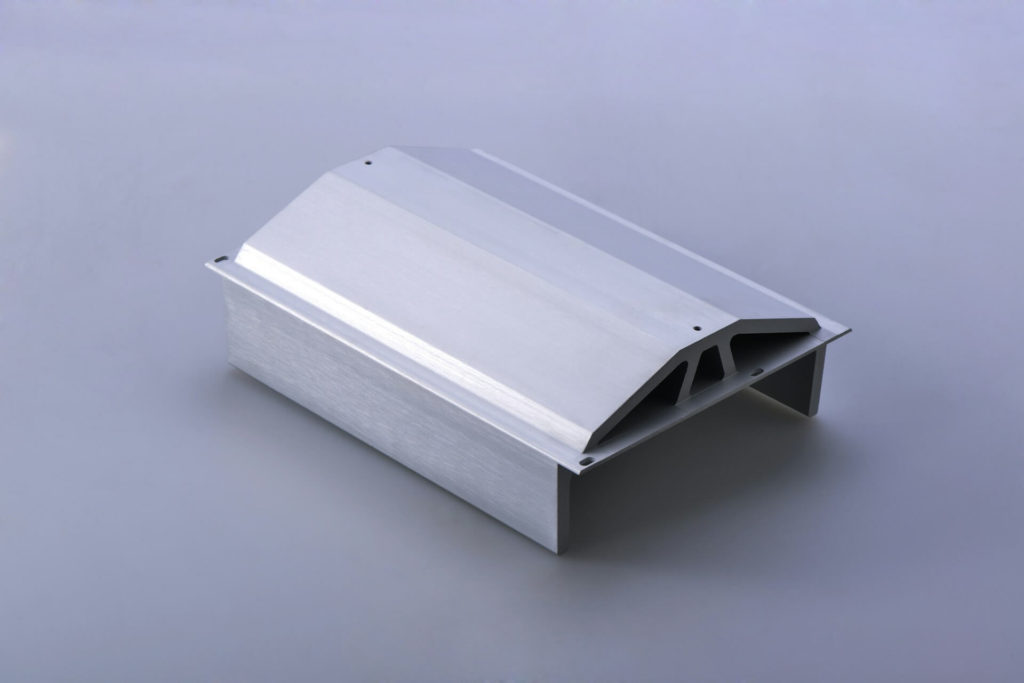Aluminum is a lightweight, strong and versatile metal that is widely used in many industries. Although its properties make it extremely useful, the question of aluminum’s environmental impact is complex and controversial.

Environmental properties of aluminum
- Natural occurrence: Aluminum is the third most widespread element in the Earth’s crust. It occurs naturally in minerals and is extremely abundant.
- Lightweight: Aluminum is three times lighter than steel and copper, making it an ideal material in structures where weight matters, such as in the aerospace and automotive industries.
- Corrosion resistance: Aluminum forms a natural oxide layer on its surface, which protects it from corrosion.
Aluminum production and environmental impact
- High CO2 emissions: The production of primary aluminum from bauxite consumes huge amounts of energy and generates significant greenhouse gas emissions, primarily carbon dioxide. CO2 emissions from aluminum production are estimated to account for about 1% of global emissions.
- Air and water pollution: The bauxite mining and processing process can lead to air and water pollution from dust, heavy metal oxides and other harmful substances.
- Soil degradation: Bauxite mining destroys natural habitats and causes soil degradation.
Aluminum recycling – an opportunity for sustainable development
Aluminum is one of the most recyclable metals. The process of recycling used aluminum consumes 95% less energy than producing virgin aluminum from bauxite. In Poland, aluminum recycling is well developed – it is estimated that about 75% of aluminum cans are recovered.
Read also: https://worldofaluminum.com/aluminum-profiles/aluminum-profiles-for-plasterboard-dimensions-types-and-applications/toue_iclg
Benefits of aluminum recycling
- Energy savings: Aluminum recycling saves huge amounts of energy, which in turn contributes to reducing greenhouse gas emissions.
- Environmental protection: Recycling reduces air and water pollution and the destruction of natural habitats.
- Saving raw materials: Recycling allows the reuse of used aluminum, which reduces the need for bauxite mining.
Can aluminum go green?
Yes, aluminum can be an eco-friendly material, provided it is used in a sustainable way. This means, first and foremost:
- Increasing the share of recycling: The more aluminum is recycled, the lower its negative impact on the environment.
- Improving production technologies: Developing new aluminum production technologies that are less energy-intensive and generate fewer CO2 emissions.
- Efficient use of aluminum: Designing aluminum products in a way that minimizes consumption of the material and allows it to be easily recycled
Examples of environmentally friendly use of aluminum
- Transportation industry: Aluminum is used in the manufacture of lightweight cars and aircraft, helping to reduce emissions.
- Construction: Aluminum is used to construct energy-efficient buildings, reducing energy consumption.
- Packaging: Aluminum cans are lightweight and easy to recycle, making them an eco-friendly solution for food and beverage packaging.
Summary
Aluminum is a valuable material with many benefits, but its production and use can negatively impact the environment. Recycling aluminum is a key element in the sustainable use of this metal. As technology develops and environmental awareness increases, aluminum can become even more environmentally friendly.
 Greenzoner.com
Greenzoner.com
Leave a Reply